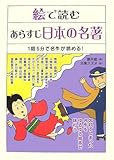
8月のゲスト有森裕子さん(1)/HILLSCAST
www.mori.co.jp J-WAVEで放送中のCMと連動してお届けする森ビルのインフォメーション「HIL LSCAST」 。 元プロマラソンランナーの有森裕子さんにお話をうかがいました 。

【MEIKO, KAITO】あいことば Ai Kotoba (english subbed / annotation)
Music Title: あいことば Ai Kotoba Music, Lyrics written by ビタワンP(Bitawan-P) ↓You can download MP3 here. ux.getuploader.com PASS:aikotoba Singers: MEIKO, KAITO, Reprinted from Nico Video www.nicovideo.jp 0:41「死んでもいいわ」[(I) won't care if (I) may die]; This is an allusion from "Asya" written by Ivan Turgenev and translated into Japanese by 二葉亭四迷(Futabatei Shimei),a famous Japanese writer in Meiji period. He translated a prase in the novel "Я люблю Вас" [I love you], as "「私、死んでもいいわ」[I won't care if I may die] . As it was thought to be vulgar for women to say "I love you" in those days, so he propably did it that way. 1:05 言霊(Kotodama)[Words Alive]:Commonly translated as "the spirit of language" or "the miraculous power of language". Traditionally Japanese believed in the power of words and uttering a thought would give a power and breathe life into them. 1:19「今宵も月が綺麗ですね」[The moon is so beautiful tonight, as always]:This is based on an episode of 夏目漱石(Natsume Souseki),a famous Japanese writer in Meiji period.He was also an English teacher and one day he told his student to put "I love you" into Japanese. When the student did it literally 「私はあなたを愛します」[I love you], he told his student, "The expression you used is too direct for Japansese. Just say 「今宵は月が綺麗ですね 」[The moon is so beautiful tonight, isn't it?] instead. Japanese would know what you mean by that." For its time, the word "愛[love]"was hardly ...








